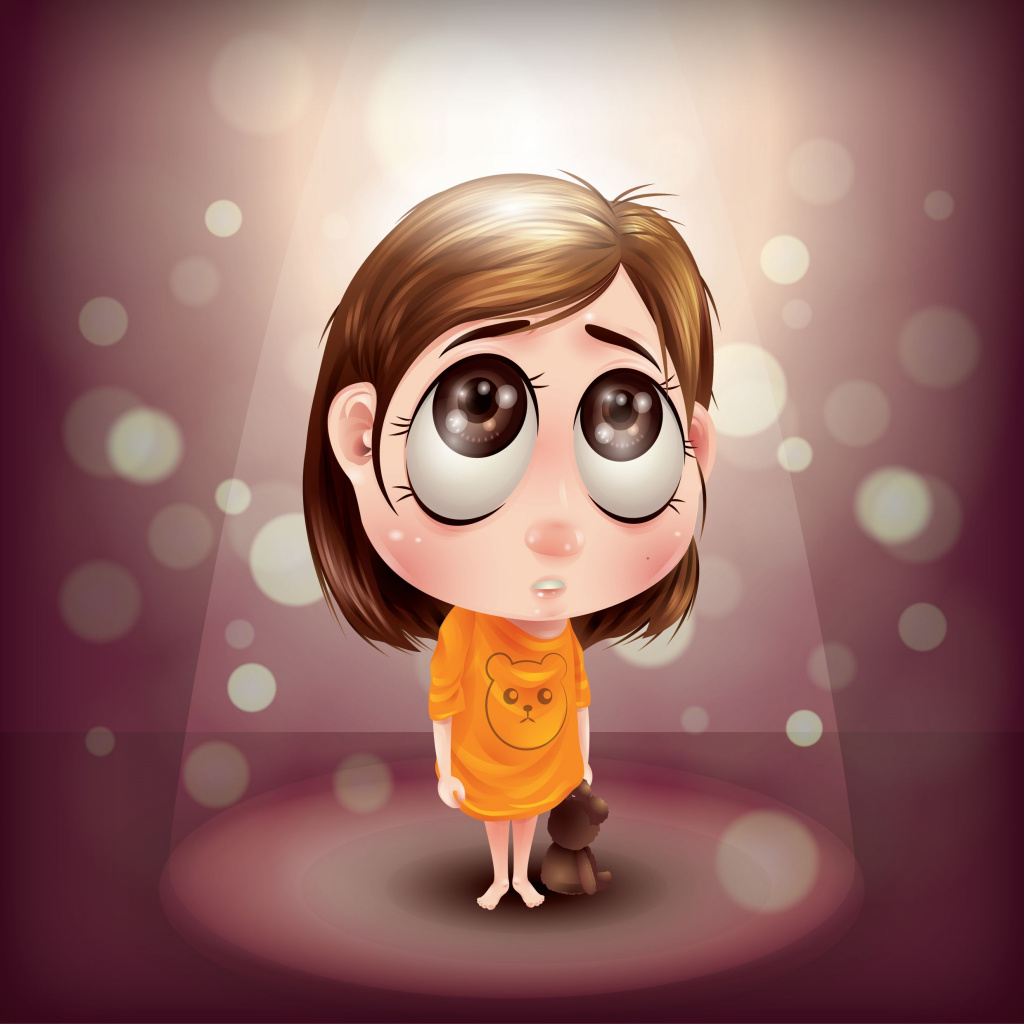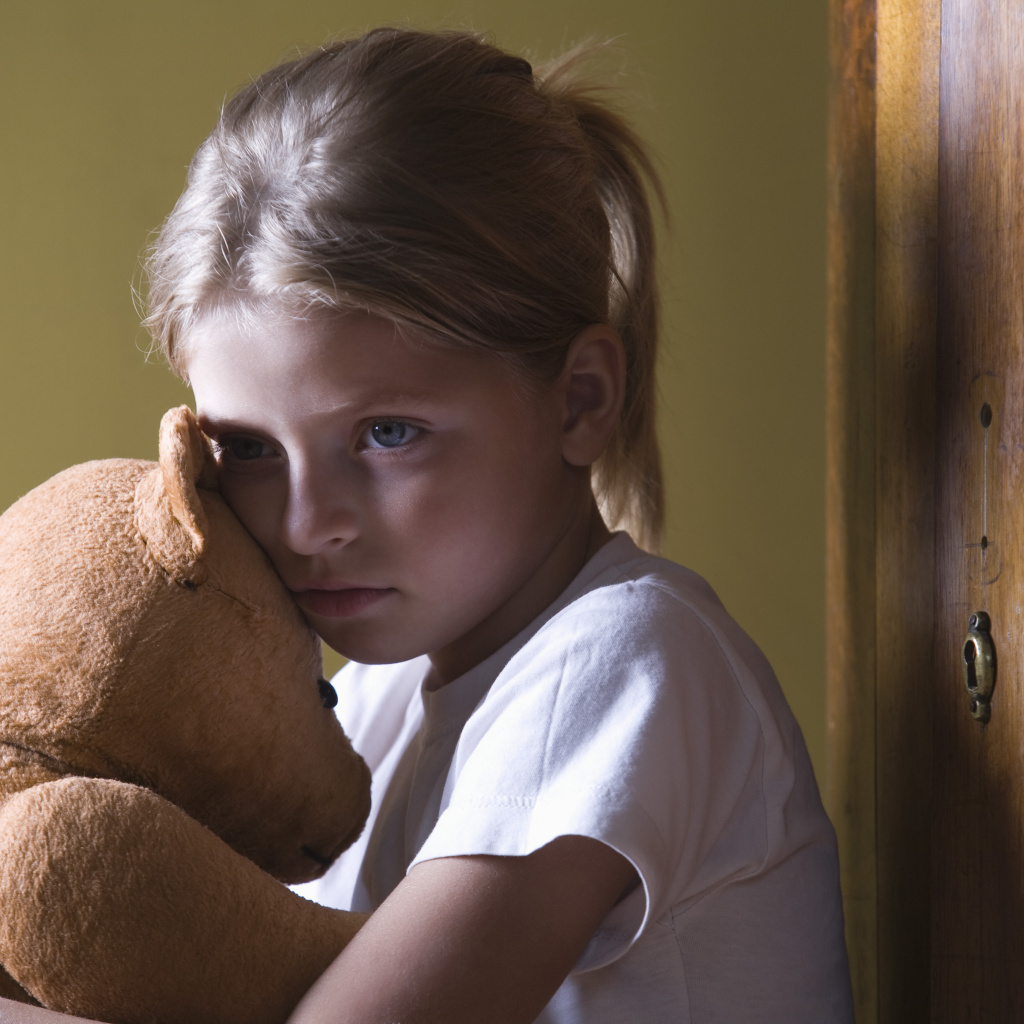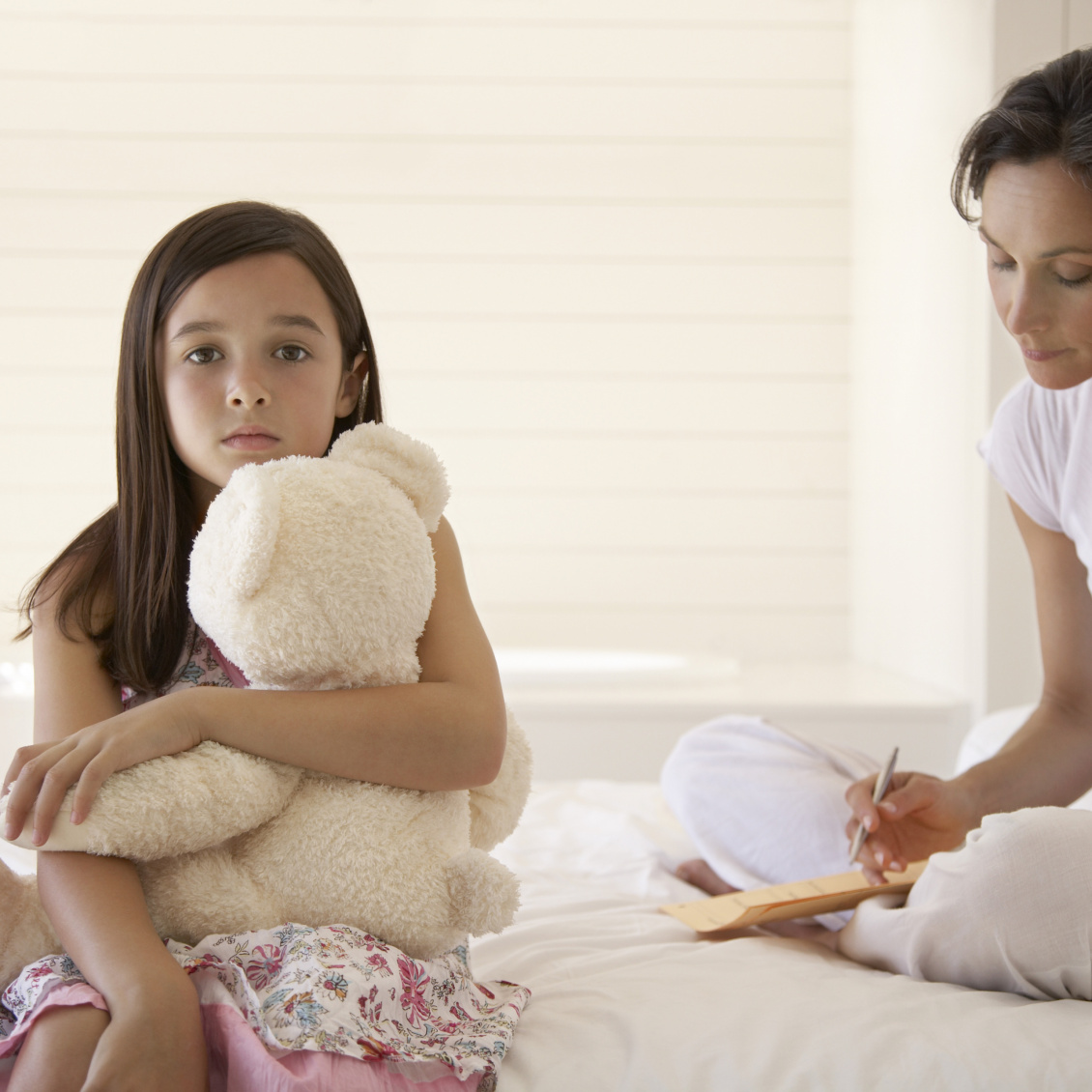Childhood trauma symptoms show up in many ways. In the past, people would come to see me for hypnotherapy regarding weight loss, anxiety, PTSD or depression. As we looked into the root cause of the physical symptoms we would uncover traumatic events around emotional, physical or sexual abuse.
The emotional and psychological trauma created by a traumatic event like this tends to have an ongoing effect on a person’s physical and mental health. Issues arise from the inner child blaming itself for childhood sexual abuse for instance. The child blames itself for what happened and will continue to punish itself all the way into adulthood. Traumatic memories are pushed down so that they can consciously be avoided. Alcohol, drugs and smoking tend to be used to distract the mind away from thinking about traumatic events where childhood trauma took place.
What is Emotional Trauma?
Psychological trauma could cause you to struggle against unresting emotions, memories, fear and anxiety that will not go away. It can also make a person feel weak, disconnected and unable to trust anyone. If you’re scared or helpless then you’re much more likely to be traumatised. Even with the trauma of a natural disaster, the struggle will be unique to those who were not directly involved. Whatever cause of childhood trauma, traumatic brain injury or accident can be overcome through the proper healing process as you move forward with your life. You can make changes in your life and recover from traumatic experiences.

What is Childhood Trauma?
Traumatic experiences make children feel helpless and scared far beyond their normal minds and emotions. Childhood trauma may appear in an event such as a disaster or an accident. They can arise in regular and serious physical, sexual or verbal abuses. All these events carry psychological and emotional distress that can last all through children’s entire life. Trauma can be caused whenever an individual recognises that he/she is in an extremely scary danger or overwhelming situation like natural tragedy or natural accidents.
Generally speaking, when working with clients that have experienced childhood trauma, we are looking at psychological trauma from emotional, physical or sexual abuse. Overcoming childhood trauma can be a very complex issue when trying to do it without the help of a mental health professional. A traumatic childhood doesn’t need to be lived on past its time. The healing process using the therapeutic methods of energy healing can bring the psychological trauma to a speedy conclusion.
The Effects of Childhood Trauma on Our Adult Lives.
Childhood trauma is believed to be among the links between childhood trauma and physiological disorders. Those who lived through emotional abusive environments are more likely to show signs of increased emotional stress and exhibit interpersonal issues in adulthood. It is a key part of recognising childhood difficulties that can be painful as yet unresolvable, said Dr Andrew Weldon a psychologist and author.
Trauma Symptoms
Childhood trauma symptoms can manifest in a variety of different ways as mentioned previously. Some people will have physical symptoms from self-harm or damage done to them through childhood sexual abuse.
Most people that have experienced childhood trauma will also have psychological symptoms. Issues around fears, finding it hard to trust people, etc. Sometimes people will present anxiety symptoms in certain situations or around certain people. If you are reminded of a person or a place where childhood sexual abuse happened, your inner protector will try to get you to leave.
Unresolved Childhood Trauma
Unresolved childhood trauma can leave trapped energies and emotions in your body. When we go through traumatic events, we can hold onto the emotions for example, until the traumatic event is resolved. If you have a range of unresolved childhood traumas living within you, it can make your adult life very difficult.
Some of the childhood trauma you will be able to resolve on your own and some you will need to have trauma treatment from a trauma expert.

What Can I Do When My Childhood Trauma is Holding Me Back?
When childhood trauma is holding you back, you have two options available to you. Either one means you have to work through those painful memories of when you have suffered trauma. You can work on things by yourself and start to heal your own childhood trauma. If you go down this route, don’t dive straight into the biggest event in which trauma happened. Instead, look at some light topics first to give you some experience of healing yourself. Then as you gain confidence about how to treat trauma, you can start to look at any emotional abuse that happened. If you try to experience childhood trauma on your own without the skills and confidence to work through it, you could do more harm than good.
The other option is to work with a trauma expert like Paul Ramsden who has lots of experience treating trauma. By creating a therapeutic relationship together you will be able to work through deep emotional and psychological trauma much quicker and easier. You won’t need to look at every traumatic event in order to overcome the mental health challenges you are experiencing. The years of experience in how to treat trauma will help you to move through these in a way you might not seem possible.
Healing From Trauma
Trauma symptoms normally last from days to months, gradually disappearing as you process the unsettling episode. Even when your feelings feel better, you may be subject to feelings of remorse and anxiety and sadness sometimes from time to time. The natural response is grief. These tips can help with healing from trauma and dealing with grief. When there is no other way to cope with traumatic incidents or life events you can face the loss of your sense of security. You might be too afraid to return after the incident and you might also have Post-Traumatic Stress Disorder.
By working with me, I can facilitate your healing and guide you through how to heal the traumatic events that you went through. Childhood trauma doesn’t need to be a cage that you keep yourself in. You can be free from the hurt that you feel.
You may also be carrying around trauma from a past life. Often times when I have used regression therapy with people to look at where their trauma comes from they go into past life regression. If you feel like you may be carrying trauma from a past life or from your family line, this healing can be done with you.

Get Moving
As well as helping to burn off that adrenaline and endorphins, exercise can actually help your nervous system. Try exercising 30 minutes or more every day. Three 10-minute runs per day are also good. The most optimum results are the repetitive movements and the activation of the arms and legs of the exercises. Bring mindfulness and movement into your exercises. Climbing, boxing heavy lifting, or mating techniques will enable you to focus on your movements to avoid injuries during these activities.
Shake It Off
Whenever you see an animal go through something, you will notice how they shake their bodies afterwards. This shaking helps the nervous system and the body to release the feeling that is moving through it. You too can stimulate this by shaking your body in the same way. Try it standing up to get your whole body moving. Shake your legs. Shake your arms. Then move your torso around as well to get the most benefit from it.
You can even make these shaking movements become part of a dance where you activate your own healing process by moving your body around. As you feel the release allow yourself to laugh. This will boost your experience by also releasing endorphins.
Explore Your Self-Knowledge.
Accept your emotions at this moment. Sit quietly and relax into being physical in your mind in the present moment. Spend a few moments alone with your trauma a day and get to know him/her and the person he/she created from you. Learning how to accept traumatic situations is a struggle that is only gained by growing comfortable around it. Acceptance starts by acknowledging this self-knowing and recognising and it’s often hard to know this but it’s good to acknowledge it yourself.
Sitting in your own space and allowing the feelings to be there is telling your body that you are worthy of experiencing emotions. When we try to push down or repress our feelings we are telling the body that feeling is bad. By sitting fully with the feelings you have around childhood traumas you will be surprised how quickly they leave the body.
Don’t Confuse Acceptance With Preference.
We fight off acceptance sometimes because it feels a little like giving in. Acceptance is not endorsing something by acceptance; you simply sift over when something bad happens. Acceptance gives you grace. It’s merely allowing things to be as they are, without imagining that you have a right or responsibility to control it or change the way it could have been otherwise. Acceptance does not mean you like the thing but supporting it doesn’t mean you can accept it.
Forgiveness and condoning are also not the same things. Forgiveness is about releasing you from the toxic emotions that are causing you harm. Trauma survivors can sometimes hold onto anger from their childhood trauma as a way of saying that it wasn’t ok. All that anger does is poison your own energy system.
See Things For What They Are.
We invest so much time and energy in understanding what is really happening in our lives that we lose touch with reality. Our imagination can pull us away especially when coping with our childhood traumas and memories. Getting ready for the future requires that you see things as the way that they are, instead of what you want to be.
Once we can accept ourselves as being where we are, we then have the power to move forward to where we want to be. A house cannot be built on unstable foundations. We too need to strengthen our foundations in order to build.
Self Regulate Your Nervous System
One thing that helps people to stop any future trauma from manifesting is to regulate their own nervous system. You can do this through a daily committed meditation practice and also through vagus nerve stimulation.
Vagus nerve stimulation is very simple to do. I start doing it sitting upright but you can also do this laying down. Try both and see which is easiest for you to do. I keep my head pointing forwards and turn my eyes as far left as I can. I then wait until I get either a yawn or a swallow response. Then I do it for the right side. Once you have done this you have reset your vagus nerve.
Helping a Loved One Deal With Trauma
When your loved one experiences severe pain your help can play a huge role in the rehabilitation process. Offer practical support so your partner can return to regular life. Have patience with this progress and remember that the responses to trauma differ for each person. Take the trauma symptoms and make no comparisons with any of them. Encourage them to do physical exercise, look for friends and pursuit hobbies to be enjoyed. When you’re helping a teen cope with traumatic events it’s essential that the conversation take place openly. Keep them informed that it can be normal to be worried about something and allow them to see if you are dealing with your symptoms in a positive way.

Distance Yourself From Toxic People.
Childhood trauma survivors should be able to get away and get rid of everyone who creates more stress and disharmony. In turbulent environments, healing cannot occur. It needs peace and quiet to grow. Those that lie cheat, steal or use other means causing harm to us are toxic to our development and poisonous to our self-awareness. Cut them free before they destroy your health and your soul. Healing cannot happen in environments where you feel unsafe.
Your mental health will thank you for spending time in nature where it is quiet. If your thoughts are overriding what you are doing then you need to seek help in order to quieten down your mind. Grounding and meditation need to be on your daily must-do list.
Don’t Isolate
After a traumatic event, you might want to withdraw from other people but this isolates your situation just as much. If it helps you to connect with strangers face to face, then make a commitment to keep good relationships and avoid spending too much time in a confined space. Some people even think it is worse.
Comfort consists of feeling understood by everyone. Remember some friends. Join a group of other people who are dealing with childhood trauma. Recognise your strength when you help others. Becoming aware of one’s own strengths can restore your power by helping others.
Realise You’re Safe Now.
When we forget that the inner child isn’t in danger we can experience symptoms of Post-Traumatic Stress Disorder. Unresolved trauma leaves us in a continuous fight or flight state, which can lead to long-term mental health conditions and is one of the contributing factors in PTSD. As we continue to deal with the brokenness rooted in the heart of every human being we cannot develop or be successful as the adults we are meant to be. Spend some quiet time with the spirit of your inner child. Reassure him or her that they had no role in the traumatic events that occurred and let them know they are safe in your loving company.
Make Your Diet Tighter.
If someone’s hurt due to child traumatic stress it generates an inflammatory response in the body. This inflammation can be addressed by tightening your diet and focusing on a healthy balance of nutrients which gives your brain the fuel it needs to get past the effects of childhood trauma. Try not to cause severe mood swings when you have a balanced diet. Take control of your mood by feeding your muscles and boosting your self-esteem to help you overcome your chronic stress. Get a healthy balanced diet and focus on nutrients you need to fuel your mind.

How Therapy for Childhood Trauma Can Help
Over two-thirds of children are having traumatic experiences before age 16. A tragic accident poses a hazard to one’s safety. For some kids, there may not be enough space to heal from emotional trauma. In adults, unresolved childhood trauma is taking many forms. Women who have suffered sexual assault when they were a child often exhibit PTSD symptoms. Finding an adequate specialised PTSD healing session can help children, adolescents, teens, and people develop healthy behaviours.
Seek Support for Healing Childhood Trauma.
When a childhood trauma victim becomes isolated, that isolation is contrary to his or her healing. Connected to others does not mean you have to talk about something in your past. It simply means engaging in the ordinary day-to-day activities that keep us plugged in and feeling as though we are part of this world. One very fine night’s sleep will not cure everything, but managing it will help a person heal his or her feelings from past adverse childhood experience and pains. Get the most sleep. Get some rest. Especially for those who are having a hard time falling asleep and keeping asleep when they come to bed.
When Should I Seek Professional Therapy for Trauma?
It’s important you hire a therapist with experience in treating trauma. A quality relationship with your therapist is equally valuable. Find a trauma specialist that’s comfortable. Seeking help for trauma in an attempt at the help of an experienced specialist. Finding the best trauma therapist may require some time, but you should also evaluate the quality of the relationship.
If you have mental health conditions, you want to be sure that you are working with someone who can understand these as you clear your childhood trauma issues. Someone who understands the effects of childhood trauma and how to help you work through traumatic memories.
Find a Trauma Specialist.
The symptoms of trauma vary from case to case and must thus be evaluated by skilled trauma practitioners. Finding an experienced therapist to help you deal with trauma can be challenging. Do you have any other questions or are looking to get some professional help? Please feel free to contact me right now. It’s hard to heal, but to live permanently in pain is harder. If you are looking for help, it is important to be ready to open up and know how you go. If it’s hard to deal with childhood trauma, seek help from one who can help you get to the root of your problem.
If you are looking for an experienced childhood trauma therapist, look no further. Paul Ramsden is an experienced trauma therapist that can help you. You can be helped to overcome childhood trauma without having to relive traumatic events of the past. If you are experiencing Post-Traumatic Stress Disorder, you can receive help with that as well.
